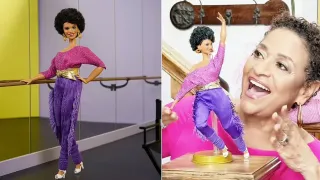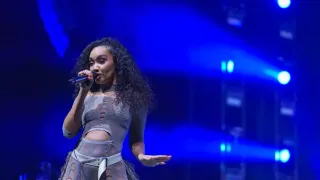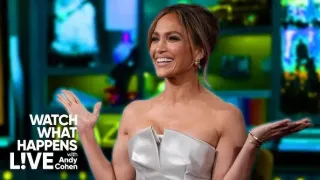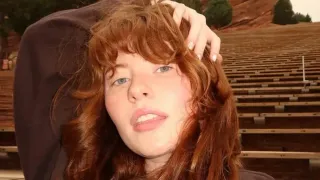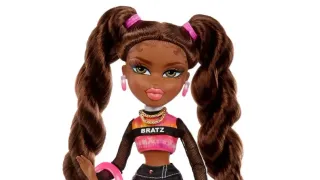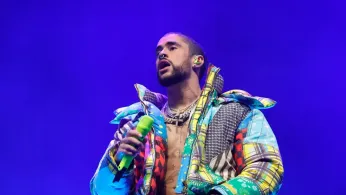
4 hours ago
Bad Bunny is a Fearless Queer Ally
READ TIME: 4 MIN.
Born Benito Antonio Martínez Ocasio in Puerto Rico, Bad Bunny emerged from the SoundCloud scene in 2013 and rose to international superstardom after signing with DJ Luían’s Hear This Music in 2016. While his chart-topping hits and dynamic performances have redefined Latin trap and reggaeton, Bad Bunny’s impact extends far beyond music. He has become a fearless ally for LGBTQ people, consistently using his reach to challenge prejudice and elevate queer voices in one of the world’s most influential musical genres .
Historically, reggaeton and Latin trap have been dominated by machismo—a cultural archetype marked by hyper-masculinity and often accompanied by misogyny, homophobia, and transphobia. Bad Bunny has openly confronted and subverted these norms, wearing skirts, dresses, and traditionally feminine clothing both onstage and in public appearances. In a 2023 Vanity Fair interview, he explained that “everyone is free to see it as they want and do it with whoever they want, however they want, with infinite possibilities,” asserting the right to gender expression and sexual fluidity .
Bad Bunny’s refusal to be defined strictly by his sexuality is also notable. In a 2020 interview with the LA Times, he stated, “At the end of the day, I don’t know if in 20 years I will like a man. One never knows in life. But at the moment I am heterosexual, and I like women.” He emphasized the importance of inclusivity in his music, saying, “There are people who listen to reggaeton and love it and, at the same time, have never felt represented within it.” By remaining open and inclusive, Bad Bunny has created space for queer and disenfranchised listeners in a genre where their representation has been scarce .
Bad Bunny’s advocacy often manifests through powerful public gestures. In February 2020, he appeared on The Tonight Show Starring Jimmy Fallon wearing a skirt and a shirt that read, “They killed Alexa, not a man in a skirt,” honoring Alexa Negrón Luciano, a homeless transgender woman murdered in Puerto Rico days earlier. The tribute brought international attention to the violence faced by transgender people and underscored Bad Bunny’s commitment to justice and visibility .
In March 2020, he released the music video for “Yo Perreo Sola,” appearing in full drag to amplify the message that everyone deserves to dance and be free without fear or judgment. Bad Bunny later told *Rolling Stone*, “I did it to show support to those who need it. I may not be gay, but I’m a human who cares.” The video was widely celebrated for its queer representation, and despite anticipating backlash, Bad Bunny pressed forward, saying, “Maybe the queer person suffers more, but it is not like I put on a skirt and go out, and they say–Look how cool. They’re going to attack me either way. You don’t know the reasons why a person is wearing that. You weren’t in his mind when he decided to put on a skirt or a blouse. You don’t know what’s inside him, what’s in his heart” .
Bad Bunny’s outspoken allyship has earned him widespread recognition. At the 34th Annual GLAAD Media Awards, he received the prestigious Vanguard Award, given to allies who make significant strides in promoting LGBTQ acceptance. Music legend Ricky Martin, introducing Bad Bunny, called him an “icon for the Latin queer community.” In his acceptance speech, Bad Bunny thanked GLAAD and the LGBTQ community “for embracing me; for loving me the way they do and for looking up to me,” stressing that he follows his heart and strives to lead with love and authenticity .
Bad Bunny’s advocacy also extends to his creative choices and collaborations. His live shows and music videos feature queer love and affection, casting performers of diverse identities and backgrounds. He is set to executive produce the Netflix adaptation of “They Both Die at the End,” a bestselling novel with a queer Latinx storyline, signaling a continued commitment to LGBTQ representation in media .
Beyond gestures and representation, Bad Bunny’s impact is felt in his outspoken opposition to systemic discrimination. He has used his platform to fight misogyny, racism, homophobia, and transphobia in the Latin music industry and Puerto Rican society. In 2019, he was among the artists who led protests demanding the resignation of former Puerto Rican Governor Ricardo Rosselló after the leader’s corruption and anti-LGBTQ attitudes were exposed .
His headlining announcement for the 2026 Super Bowl halftime show was celebrated by many in the LGBTQ community, who see his visibility as a win for inclusion and diversity. In a statement, Bad Bunny dedicated the achievement to “my people, my culture, and our history,” emphasizing his ongoing mission to uplift marginalized voices .
Bad Bunny’s journey as an ally is ongoing, marked by a willingness to challenge entrenched norms and center LGBTQ stories on the global stage. As he continues to break barriers in music, fashion, and media, his message remains clear: allyship is about action, visibility, and a commitment to justice for all.

